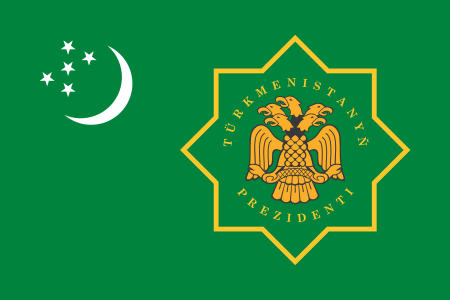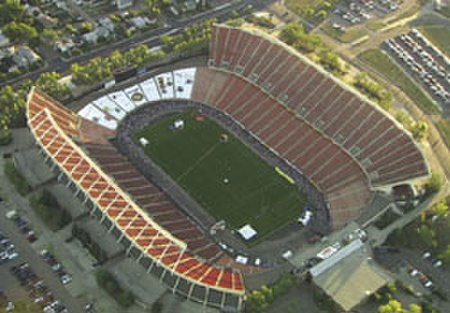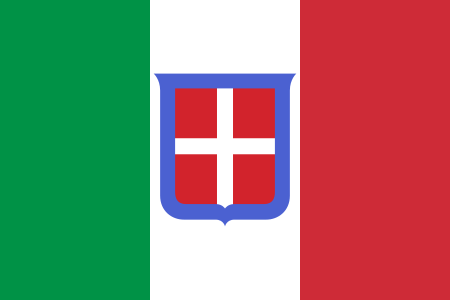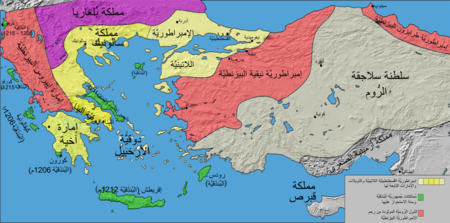| Country
|
Notes
|
 Armenia Armenia |
See Armenia–Bosnia and Herzegovina relations
- Armenia is accredited to Bosnia and Herzegovina from its embassy in Prague, Czech Republic.
- Bosnia and Herzegovina is accredited to Armenia from its embassy in Moscow, Russia.
|
 Australia Australia
|
- Bosnia and Herzegovina has an embassy in Canberra.
- Australia has an Honorary Consulate in Sarajevo, however services such as passports and visas are managed by the Australian Embassy in Vienna.
Bosnian migration to Australia has occurred in three main waves in the 20th century, with the biggest group coming during the Bosnian War in the 1990s. Many Bosnians arriving as refugees settled in Melbourne where they have established strong community groups and many mosques.
Business links between the two countries are in their infancy with many in the Bosnian diaspora starting to build connections through groups like the "Australian Bosnian and Herzogovinian Chamber of Commerce".[1] In 2023, Australia exported US$1.34 Million worth of goods to Bosnia and Herzegovina, primarily consisting of machinery and electrical equipment.
|
 Austria Austria |
- Bosnia and Herzegovina has an embassy in Vienna.
- Austria has an embassy in Sarajevo.
|
 Brazil Brazil |
- Bosnia and Herzegovina is accredited to Brazil from its embassy in Washington, D.C., United States.
- Brazil has an embassy in Sarajevo.
|
 Bulgaria Bulgaria |
Both countries established diplomatic relations on 15 January 1992. Since 1996, Bulgaria has an embassy in Sarajevo.[5] Bosnia and Herzegovina has an embassy in Sofia.[6] Both countries are full members of the Southeast European Cooperation Process, of the Southeast European Cooperative Initiative, of the Stability Pact for South Eastern Europe, of the Organization for Security and Co-operation in Europe and of the Council of Europe. Bulgaria was the first country to recognize Bosnia as an independent country.
|
 Canada Canada |
See Bosnia and Herzegovina–Canada relations
Bosnia and Herzegovina is represented through the Embassy of Bosnia and Herzegovina in Ottawa, while Canada is represented by the embassy of Canada in Budapest. Three Canadian organizations operate programs in Bosnia and Herzegovina: Foreign Affairs and International Trade Canada (DFAIT), the Canadian International Development Agency (CIDA) and the Department of National Defence (DND). Canada strongly supports the signing of the Dayton Agreement hoping it can help bring more stability to the region. Through the Canadian International Development Agency Canada has given more than CA$ 144 million in development assistance.
Exports of Bosnia and Herzegovina to Canada are worth about US$ 5.31 million per year, while exports of Canada to Bosnia and Herzegovina value about US$5.34 million per year.
- Embassy of Canada to Bosnia and Herzegovina
|
 Croatia Croatia |
See Bosnia and Herzegovina–Croatia relations
Discussions continue with Croatia on several small disputed sections of the boundary related to maritime access that hinder final ratification of the 1999 border agreement.
Sections of the Una river and villages at the base of Mount Plješevica are in Croatia, while some are in Bosnia, which causes an excessive number of border crossings on a single route and impedes any serious development in the region. The Zagreb-Bihać-Split railway line is still closed for major traffic due to this issue. The road Karlovac-Plitvice Lakes-Knin, which is on the European route E71, is becoming increasingly unused because Croatia built a separate highway to the west of it.
The border on the Una river between Hrvatska Kostajnica on the northern, Croatian side of the river, and Bosanska Kostajnica on the southern, Bosnian side, is also being discussed. A river island between the two towns is under Croatian control, but is claimed by Bosnia. A shared border crossing point has been built and has been functioning since 2003, and is used without hindrance by either party.
The Herzegovinian municipality of Neum on the Adriatic coast makes the southernmost part of Croatia an exclave and the two countries are negotiating special transit rules through Neum to compensate for that. Recently Croatia has opted to build a bridge to the Pelješac peninsula to connect the Croatian mainland with the exclave but Bosnia and Herzegovina has protested that the bridge will close its access to international waters (although Croatian territory and territorial waters surround Bosnian-Herzegovinian territory and waters completely) and has suggested that the bridge must be higher than 55 meters for free passage of all types of ships. Negotiations are still being held.
- Bosnia and Herzegovina has an embassy in Zagreb and consulate-general in Rijeka.
- Croatia has an embassy in Sarajevo and consulates-general in Banja Luka, Livno, Mostar, and Tuzla.
- Bosnia and Herzegovina is an EU candidate and Croatia is an EU member.
|
 Cyprus Cyprus |
Cyprus recognized Bosnia and Herzegovina's independence on 7 February 2000, both countries established diplomatic relations on the same date. Bosnia and Herzegovina is represented in Cyprus through its embassy in Tel Aviv, Israel.[7] Cyprus is represented in Bosnia and Herzegovina through its embassy in Budapest, Hungary.[8] Both countries are full members of the Union for the Mediterranean, of the Organization for Security and Co-operation in Europe and of the Council of Europe.
|
 Czech Republic Czech Republic |
The Czech Republic recognized Bosnia and Herzegovina's independence on 8 February 1992. Both countries established diplomatic relations on 8 April 1993. Bosnia and Herzegovina has an embassy in Prague.[9] The Czech Republic has an embassy in Sarajevo.[10] Both countries are full members of the Organization for Security and Co-operation in Europe and of the Council of Europe.
|
 Denmark Denmark |
See Bosnia and Herzegovina – Denmark relations
|
 Finland Finland |
See Bosnia and Herzegovina–Finland relations
|
 France France |
In 2019, Bosnia's presidency summoned the French ambassador Guillaume Rousson to protest over President Emmanuel Macron’s comment in an interview with British weekly The Economist that the country is a “time bomb” due to returning Islamist fighters.[11]
|
 Georgia Georgia |
Bosnia and Herzegovina and Georgia established diplomatic relations in 1998. They share relations at the non-resident ambassadorial level. The first high-level visit was that paid by the BiH Foreign Minister Igor Crnadak to Tbilisi in August 2016.[12] In January 2018, Georgia issued a protest note to BiH over the breakaway South Ossetian leader Anatoly Bibilov's visit to the Republika Srpska. In a response, the BiH Foreign Ministry stated that Georgia and Bosnia had good relations and Bosnia would not interfere into the question of South Ossetia.[13] Crnadak also said Bibilov's visit damaged an international standing of the Republika Srpska.[14]
|
 Germany Germany |
See Bosnia and Herzegovina–Germany relations
Germany is one of the most important partners of Bosnia and Herzegovina in foreign affairs. Bilateral relations have developed steadily since diplomatic ties were established in mid-1994. Germany was closely involved in efforts to bring about peace before and after the conclusion of the Dayton Agreement. There is also a long tradition of economic relations between Germany and Bosnia. When the country was still part of the former Yugoslavia, joint ventures and cooperation played a large role here (motor industry, metal processing, textile industry/contract processing work, steel and chemicals). After the war, Germany took on a spearheading role in investments in production in Bosnia and Herzegovina, which is undergoing a transitional phase from a centrally planned to a market economy. These investments are concentrated primarily in vehicle assembly and parts supply, the construction industry/cement, raw materials processing/ aluminum and regional dairy farming.[15]
|
 Greece Greece |
Greece recognized Bosnia and Herzegovina's independence in 1992. Both countries established diplomatic relations on 30 November 1995. Since 1998, Bosnia and Herzegovina has an embassy in Athens. Since 1996, Greece has an embassy in Sarajevo.[16] Both countries are full members of the Union for the Mediterranean, of the Southeast European Cooperation Process, of the Southeast European Cooperative Initiative, of the Organization for Security and Co-operation in Europe and of the Council of Europe. In 2006, Greece provided 80.4% of the funding for the reconstruction of the Greece–Bosnia and Herzegovina Friendship Building.
|
 Holy See Holy See |
See Holy See–Bosnia and Herzegovina relations
Holy See recognized Bosnia and Herzegovina's independence on 7 April 1992.[17] Both countries established diplomatic relations on 20 August 1992.[18]
|
 Hungary Hungary |
Hungary recognized Bosnia and Herzegovina's independence on 9 April 1992. Both countries established diplomatic relations on 10 April 1992. Bosnia and Herzegovina has an embassy in Budapest. Hungary has an embassy in Sarajevo.[19] Both countries are full members of the Organization for Security and Co-operation in Europe and of the Council of Europe.
|
 India India |
See Bosnia and Herzegovina–India relations
|
 Indonesia Indonesia |
See Bosnia and Herzegovina–Indonesia relations
|
 Iran Iran |
See Bosnia and Herzegovina–Iran relations
|
 Malaysia Malaysia |
See Bosnia and Herzegovina–Malaysia relations
Malaysia, under Prime Minister Mahathir Mohamad (1981–2003), had been one of the strongest supporters of the Bosnian cause during the war and the only Asian country that accepted Bosnian refugees. Malaysia sent UN Peacekeeping troops to the former Yugoslavia. Malaysia maintains a number of investments in Bosnia-Herzegovina, one of the most significant is the Bosmal Group. Bosmal is a joint venture set up between Malaysian and Bosnian interests. A number of Bosnian students are currently studying at the International Islamic University Malaysia in Gombak. Malaysia maintains an embassy in Sarajevo and Bosnia-Herzegovina maintains an embassy in Kuala Lumpur.
|
 Mexico Mexico |
- Bosnia and Herzegovina is accredited to Mexico from its embassy in Washington, D.C., United States.[20]
- Mexico is accredited to Bosnia and Herzegovina from its embassy in Belgrade, Serbia.[21]
|
 North Macedonia North Macedonia |
See Bosnia and Herzegovina–North Macedonia relations
The two countries first shared the same 90s objective of pursuing independence from Yugoslavia, and in the 21st century, the common objective of joining the EU.
|
 Pakistan Pakistan |
See Bosnia and Herzegovina–Pakistan relations
Pakistan and Bosnia and Herzegovina enjoy close and cordial relations.[22] Pakistan recognised the independence of Bosnia from Yugoslavia in 1992. Pakistan sent in UN Peacekeeping forces to the former Yugoslavia during the Yugoslav wars. During the war, Pakistan supported Bosnia while providing technical and military support to Bosnia. Pakistan and Bosnia have a free trade agreement. During the War time, Pakistan had hosted thousands of Bosnians as refugees in Pakistan.[23] Pakistan has also provided medium-tech to high Tech weapons to Bosnian Government in the past.
|
 Poland Poland |
- Bosnia and Herzegovina has an embassy in Warsaw.
- Poland has an embassy in Sarajevo.
|
 Romania Romania |
See Bosnia and Herzegovina–Romania relations
Romania recognized Bosnia and Herzegovina's independence on 1 March 1996, both countries established diplomatic relations on the same day. Bosnia and Herzegovina has an embassy in Bucharest. Romania has an embassy in Sarajevo. Relations were described as "excellent" by the foreign ministers in 2006, ahead of the opening of the Bosnian embassy in Bucharest.[24]
|
 Russia Russia |
See Bosnia and Herzegovina–Russia relations
Bosnia is one of the countries where Russia has contributed troops for the NATO-led stabilization force.[25] Others were sent to Kosovo and Serbia.
|
 Saudi Arabia Saudi Arabia |
See Bosnia and Herzegovina–Saudi Arabia relations
Saudi Arabia has provided enormous financial assistance to Bosnia and Herzegovina since its independence in 1992. Saudi interests also funded for the construction of the King Fahd Mosque, which is currently the largest mosque in Sarajevo. Bosnia and Herzegovina maintains an embassy in Riyadh and Saudi Arabia maintains an embassy in Sarajevo.
|
 Serbia Serbia |
See Bosnia and Herzegovina–Serbia relations
Bosnia and Herzegovina filed a suit against the Federal Republic of Yugoslavia (present-day Serbia and Montenegro) before the International Court of Justice for aggression and genocide during the Bosnian War which was dismissed. Serbia was found responsible for failure to prevent genocide in Srebrenica.[26][27] Sections along the Drina River remain in dispute between Bosnia and Herzegovina and Serbia.[28]
|
 Slovenia Slovenia |
- Bosnia and Herzegovina has an embassy in Ljubljana.
- Slovenia has an embassy in Sarajevo.
|
 South Korea South Korea |
See Bosnia and Herzegovina–South Korea relations
Both countries established diplomatic relations on 15 December 1995.[29]
|
 Spain Spain |
See Bosnia and Herzegovina–Spain relations
- Bosnia and Herzegovina has an embassy in Madrid.
- Spain has an embassy in Sarajevo.
|
 Sweden Sweden |
See Bosnia and Herzegovina–Sweden relations
|
 Turkey Turkey |
See Bosnia and Herzegovina–Turkey relations
Turkey provided both political and financial support to Bosnia and Herzegovina during the war. After the war, relations have improved even more, and today Turkey is one of BiH's top foreign investors and business partners.[30]
|
 Ukraine Ukraine |
See Bosnia and Herzegovina–Ukraine relations
|
 United Kingdom United Kingdom |
See Bosnia and Herzegovina–United Kingdom relations
Bosnia and Herzegovina established diplomatic relations with the United Kingdom on 13 April 1992.
- Bosnia and Herzegovina maintains an embassy in London.
- The United Kingdom is accredited to Bosnia and Herzegovina through its embassy in Sarajevo, and an embassy office in Banja Luka.[31]
Both countries share common membership of the Council of Europe, the International Criminal Court, and the OSCE. Bilaterally the two countries have an Investment Agreement,[32] and a Reciprocal Healthcare Agreement.[33]
|
 United States United States |
See Bosnia and Herzegovina–United States relations
The 1992–1995 war in Bosnia and Herzegovina was ended with the crucial participation of the United States in brokering the 1995 Dayton Accords. After leading the diplomatic and military effort to secure the Dayton agreement, the United States has continued to lead the effort to ensure its implementation. The United States maintains command of the NATO headquarters in Sarajevo. The United States has donated hundreds of millions of dollars to help with infrastructure, humanitarian aid, economic development, and military reconstruction in Herzegovina and Bosnia. The U.S. Agency for International Development (USAID) and Support for Eastern European Democracies (SEED) has played a large role in post-war Bosnia and Herzegovina, including programs in economic development and reform, democratic reform (media & elections), infrastructure development, and training programs for Bosnian professionals, among others. Additionally, there are many non-governmental organizations (NGOs) that have likewise played significant roles in the reconstruction.[34]
|























